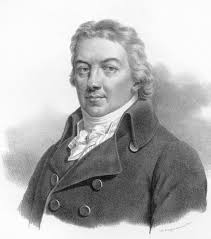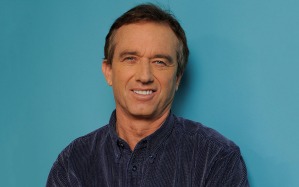Immunity and Community Part Two
by Michael Patrick O'Leary
A version of this article appeared on page A10 of Ceylon Today on Thursday April 16 2015. It is a sequel to an article published on April 7: http://www.ceylontoday.lk/51-89454-news-detail-immunity-and-community.html
My grandfather, before the First World War, worked as groom and footman at Berkeley Castle near Bristol. He was born at Wotton-under-Edge in Gloucestershire.
Edward Jenner
Many years earlier Edward Jenner also worked at Berkeley Castle. I have seen the building where Jenner changed the world. The book Smallpox Zero includes President Thomas Jefferson’s letter of congratulation to Jenner. Edward Jenner was born on 17 May 1749 in Berkeley, the eighth of nine children. His father, the Reverend Stephen Jenner, was the vicar of Berkeley. Edward Jenner went to school in Wotton-under-Edge and Cirencester. During this time, he was inoculated for smallpox.
Edward Jenner called smallpox the Speckled Monster. During his time, it killed ten per cent of the population, rising to 20% in urban areas where infection spread easily and it was responsible for one in three of all child deaths. Noting the common fact that milkmaids were generally immune to smallpox, Jenner postulated that the pus in the blisters that milkmaids received from cowpox protected them from smallpox. He coined the term vaccination – the word vacca means ‘cow’ in Latin. In 1979, the World Health Organization declared smallpox an eradicated disease. This was the result of coordinated public health efforts by many people, but vaccination was an essential component of this success.
Even in Jenner’s time, there was opposition to vaccination. Variolators, (those who made much profit from collecting the pus of affected patients to promote immunity) objected for commercial reasons. Some opposed vaccination on religious grounds, saying that they would not be treated with substances originating from God’s lowlier creatures. Variolation was forbidden by Act of Parliament in 1840 and vaccination with cowpox was made compulsory in 1853. This in its turn led to protest marches and vehement opposition from those who demanded freedom of choice. The term “conscientious objector” came out of resistance to the 1853 statute requiring the vaccination of all infants. Forty-five years later, the government added a “conscience clause,” allowing parents to apply for an exemption. The exemption clause was rather vague, requiring only that the objector satisfy a magistrate that it was “a matter of conscience.”
Conscientious Objection
Taking one anti-vaccination website at random, here are some of the arguments one finds:
- Pharmaceutical companies cannot be trusted
- All vaccines are loaded with chemicals and other poisons
- Fully vaccinated children suffer more chronic illnesses than unvaccinated children
- Many countries are waking up to the dangers of vaccines
- Many opponents are prey to what Eula Biss, in her book On Immunity, calls “a variety of preindustrial nostalgia”
- An important element of opposition is libertarian, either on the left or on the right, and anti-government.
On Fox News, Sean Hannity announced that he would not trust “President Obama to tell me whether to vaccinate my kids.” Senator Rand Paul, a potential Republican candidate for President—and a doctor—said: “I’ve heard of many tragic cases of walking, talking, normal children who wound up with profound mental disorders after vaccines.” He did not provide evidence to support this anecdote.
Deadly Immunity?
Proponents say that vaccination is safe and one of the greatest health developments of the 20th century. They point out that illnesses, including rubella, diphtheria, smallpox, polio, and whooping cough, are now prevented by vaccination and millions of children’s lives are saved. I recently read in The Lancet that Hepatitis-C will soon be history. They contend that adverse reactions to vaccines are extremely rare.
Opponents of vaccination today say that children’s immune systems can deal with most infections naturally, and that injecting questionable vaccine ingredients into a child may cause side effects, including seizures, paralysis, and death. Some who commented on last week’s article spoke of a link between vaccines and autism and expressed a justifiable suspicion of the motives of Big Pharma. In 2005, Robert F Kennedy Jr wrote an article arguing that there was a cover-up of a link between thimerosal used in vaccines and speech delays, attention-deficit disorder, hyperactivity, and autism.
Kennedy’s article was corrected many times within days of publication, and was eventually retracted and deleted. An 18-month investigation by the US Senate Committee on Health, Education, Labor and Pensions concluded that Kennedy’s allegation was unsubstantiated. Nevertheless, “thimerosal was [being] voluntarily removed from childhood vaccines distributed in the United States as a precaution,” prompted by a joint request by the American Academy of Paediatrics and the US Public Health Service.
“I think it is dangerous that he is spreading misinformation about something that’s very important for public health,” Senator Richard Pan, a paediatrician, said in an interview. “Autism rates have continued to rise even though we are not using thimerosal in vaccines for children,” he added. “We still haven’t figured out exactly what causes autism. We do know it’s not vaccines.”
Autism and Vaccination
In February 1998, the Lancet published an article by Andrew Wakefield MD, which claimed, “Rubella virus is associated with autism and the combined measles, mumps, and rubella [MMR] vaccine… has also been implicated.” Anti-vaccination groups and parents began using Wakefield’s article as rationale to opt-out of vaccinating their children.

Between 2003 and 2012, Brian Deer, an investigative reporter, published 36 articles, which accused Wakefield of “falsifying medical histories of children and essentially concocting a picture, which was the picture he was contracted to find by lawyers hoping to sue vaccine manufacturers and to create a vaccine scare.” Ten of Wakefield’s twelve co-authors released a “Retraction of an Interpretation” in Lancet, stating, “We wish to make it clear that in this paper no causal link was established between MMR vaccine and autism as the data were insufficient.”
The Lancet stated on February 2 2010, “It has become clear that several elements of the 1998 paper by Wakefield et al are incorrect.” On January 5 2011, the British Journal of Medicine published an article stating that Wakefield received over $674,000 from lawyers and that, of 12 children examined, five had developmental problems before being vaccinated and three never had autism.
In 2011, Wakefield’s medical license was withdrawn because he had “abused his position of trust” and “brought the medical profession into disrepute.” The American Academy of Paediatrics has released a list of more than 40 studies showing no link whatsoever between vaccines and autism.
It is ironic that part of the autism scare is distrust of Big Pharma but Wakefield took large sums of money to falsify his research. There are others making big money out of fear. In 2011, Dr Joseph Mercola donated one million dollars to a number of organizations that oppose vaccination. He heads the Mercola Natural Health Center in Chicago and offers information on his website about the dangers of water fluoridation and metal amalgam in dental fillings, as well as speculation that HIV does not cause AIDS. The site gets two million hits a month and products available for purchase range from tanning beds to air purifiers to vitamins and supplements. The website and Mercola LLC generated an estimated $7 million in 2010.
Herd Immunity
Why cannot vaccination be a matter of individual choice? When large percentages of a population have become immune to an infectious disease, this provides a measure of protection for individuals who are not immune. Once a certain threshold has been reached, herd immunity or community immunity will gradually eliminate a disease from a population. Herd immunity also exerts an evolutionary pressure on certain microorganisms. Opposition to vaccination has posed a challenge to achieving herd immunity in certain populations, allowing diseases to persist in communities that have inadequate vaccination rates. Parents who fail to vaccinate their children may be jeopardizing the health of other children who are unable to be vaccinated. When the number of unvaccinated children rises above a certain threshold, “herd immunity” is compromised.
Legal Compulsion
Some legal experts believe that parents who do not vaccinate their children should be subject to criminal prosecution (including criminally negligent homicide and monetary damages) if their unvaccinated children infect and harm other children.
The highest vaccination rate in the US is in Mississippi, a state with an otherwise dismal set of health statistics. It allows people to opt out of vaccines only for medical reasons—not for religious or personal ones. States that make it easier not to vaccinate have higher rates of infectious diseases.
Conclusion
I shared some articles written by others on Facebook condemning those who endanger lives by opposing vaccination. One of my Facebook friends said that his nephew suffered irreversible brain damage after vaccination. I had no answer to that. I could not argue that there must have been some other cause. The family who suffer that kind of grief will not be receptive to arguments about herd immunity.
In her book On Immunity Eula Biss tries to reconcile her divided feelings, fearing both infection and the imagined risks of vaccination: “On the pro-vaccine side … is a tendency to accuse people who are wary of vaccination of being stupid and not understanding science … most of them actually are in my demographic: well-educated people with advanced degrees, who are upper middle-class and have read quite a bit on the subject… I think if we’re really concerned about stopping falling vaccination rates, we also need to be concerned about the actual reasons why those rates are falling, and not just write it off to stupidity.”
The debate is often conducted stridently on both sides. We need to sympathise with people’s genuine fears that vaccines might be harmful to their own children. Try telling a mother that she should accept the risk of her own child dying in order that thousands might live. What mother sees her child as a mere component of “the herd”? At that same time, we need to look at the research calmly and resist the propagation of myths.




Very interesting couple of articles, PC.
‘we need to look at the research calmly and resist the propagation of myths’.
Indeed, but we humans seem very prone to irrationality. It has been shown that even educated and intelligent people often have a very poor understanding of issues of probability, how to interpret statistics etc. Also popular press editors know that scare stories, however absurd, sell newspapers. And then, of course there are vested interests from Big Pharma on the one hand to purveyors of quack remedies on the other. (Yes, these can be the same!) In short, a huge problem.
I would like to see courses in Critical Thinking taught in all schools everywhere. This might make a difference in the long term but I’m not holding my breath.
LikeLike
Thanks Alastair. I feel an article on Critical thinking coming on!
LikeLike
http://www.thedailymash.co.uk/news/society/crap-parent-incredibly-worried-about-mmr-jab-2013041765881
LikeLike